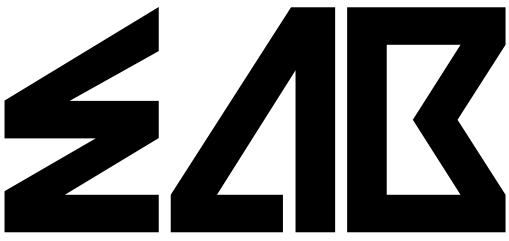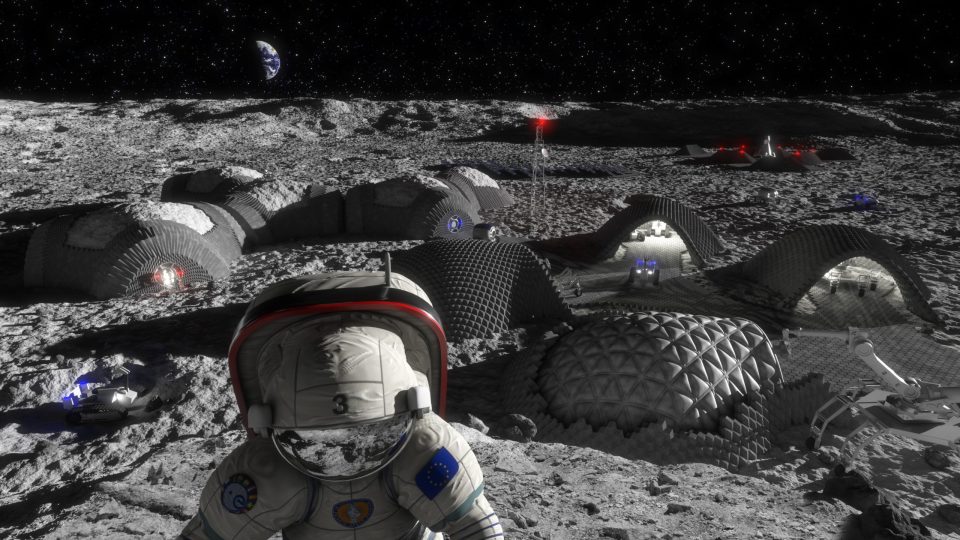NOVEL INNOVATIONS
VOLUME #5
EXHIBITION OPENING 30th JUNE 2021, 7pm
30/6 – 20/8 JAROSLAV FRAGNER GALLERY, PRAGUE
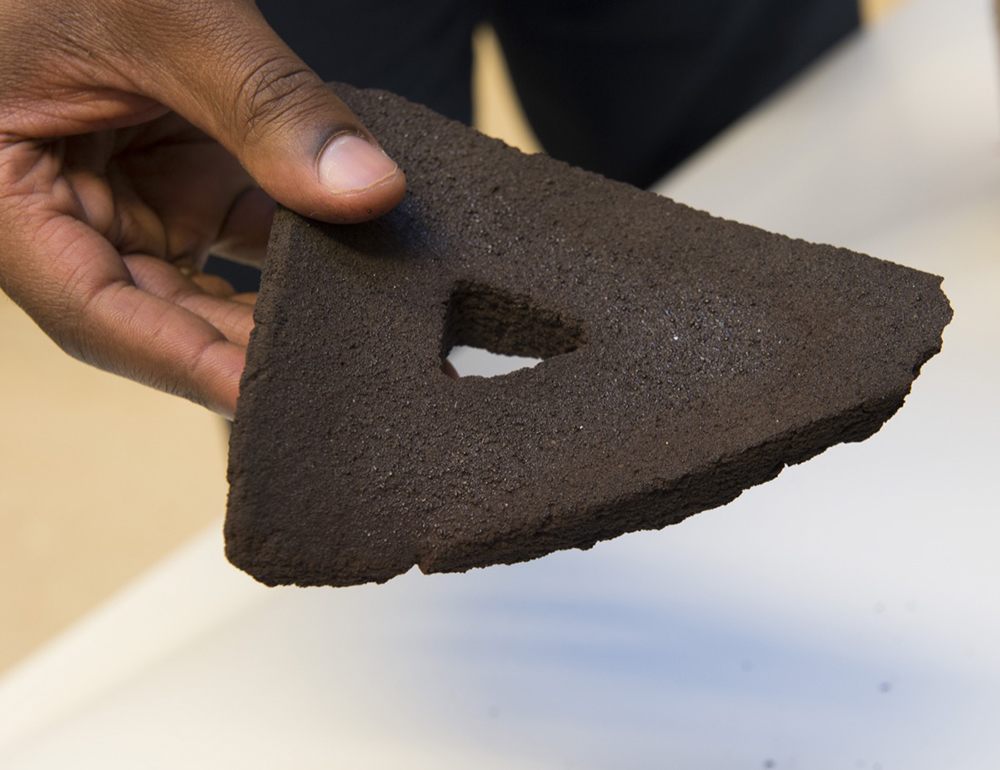
LIQUIFER Systems Group
is a trans-disciplinary group of experts committed to innovative research and product development with space and terrestrial applications. Architecture, Science and Technology coalesce in the creation of concepts, scenarios, prototypes, systems, and products for future living and working on earth and in space.
RegoLight
Consortium partners German Aerospace Centre (DLR), Cologne – Germany / Space Applications Services – Belgium / LIQUIFER Systems Group – Austria / COMEX – France / Bollinger Grohmann Schneider – Austria
LIQUIFER team Waltraut Hoheneder, Barbara Imhof, René Waclavicek, Molly Hogle
The project has received funding from the European Union’s Horizon 2020 Research and Innovation Programme under Grant Agreement no 686202.
ACADEMIC PLATFORMS


FLO|W / Florian Studio
was established after a many-year effort of Miloš Florián at the Czech Technical University /CTU/ in Prague_Faculty of Architecture_Department of Building Construction I. in the autumn 2004. The name FLO│W, previously under the name of Glass/Freeform Architecture, suggests the main focus not only of the projects, but also of the pedagogie activity. The work of the pedagogue, tutors, research of Ph.D. Program and students of the Studio tries to reflect the above mentioned tendencies based on other principles and multidisciplinary co-operation than it has been common till now, in modest conditions. It depends on the individual capabilities of every person.
.
Studio FLO│W is of the opinion that a digitally-driven architecture should be flexible, interactive and adaptable. Software is a driving force in all the phases of the structure planning and rise of the building′s architecture. A characteristic feature is continuous effort of innovation. Architecture becomes inspired by the natural processes projecting into the procedure of planning based on application of evolutionary technologies enriched both by advanced simulations, animations and the tools of building structure design, and by parametric design system and script methods. By the creative engagement of algorithms an architect, a designer or a student can generate endless number of similar structures of buildings, which means a geometry output of predetermined dimensional, referential and functional dependencies.
.
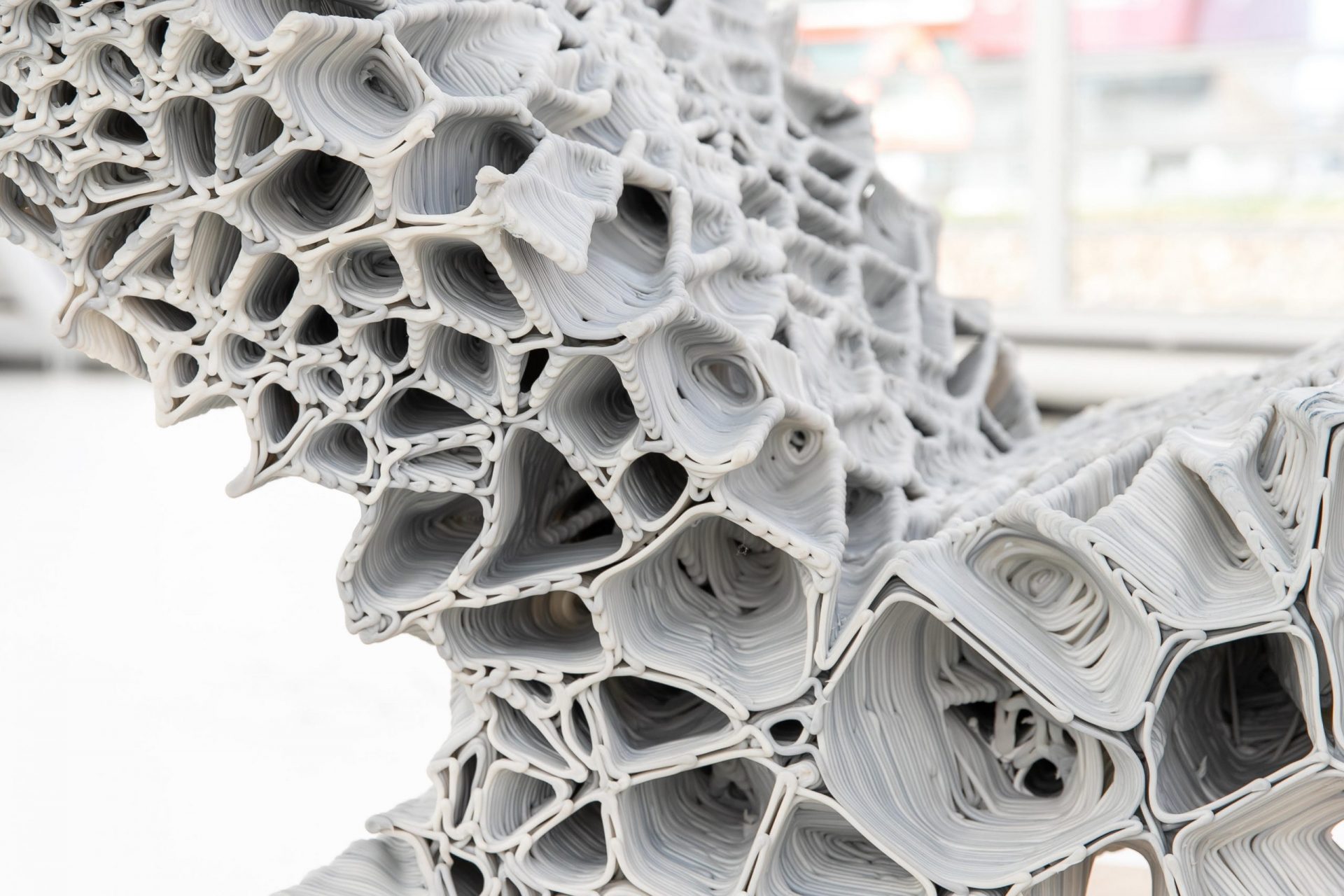
Robotic Building (RB) lab
has been established in 2014 within Digital Architecture AKA Hyperbody, TU Delft. It is part of TU Delft Robotics Institute and co-founding partner of the International Network Adaptive Environments. Research and education implemented in the lab focus on (a) physically built robotically augmented environments and (b) robotically supported building processes. Reconfigurable, robotic environments incorporating sensor- actuator mechanisms that enable buildings to inter-act with their users and surroundings in realtime may require design to production, assembly, and operation chains that may be (in part or as whole) implemented by robotic means.
By designing materials with variable stiffness, structures can adapt to various functional requirements. This paper presents variable stiffness explored in two case studies relying on an architected material approach that involved gradient pattern differentiation and freeform printing using thermoplastic polymers (TPE). The differentiated cell pattern had gradients from high to low density of cells, which facilitate variable stiffness. Numerical and experimental studies showed the potential for application of materials with variable stiffness in adaptive structures.
Robotic Building, TU Delft: Henriette Bier, Arwin Hidding, and Vera Laszlo
3D Robot Printing, Rotterdam: Jasper Menger
This project has profited from support from 4TU, TUE, and CPFL. Its photographic representation is to be credited to www.RoboticBuilding.eu and www.DutchChairmen.com.
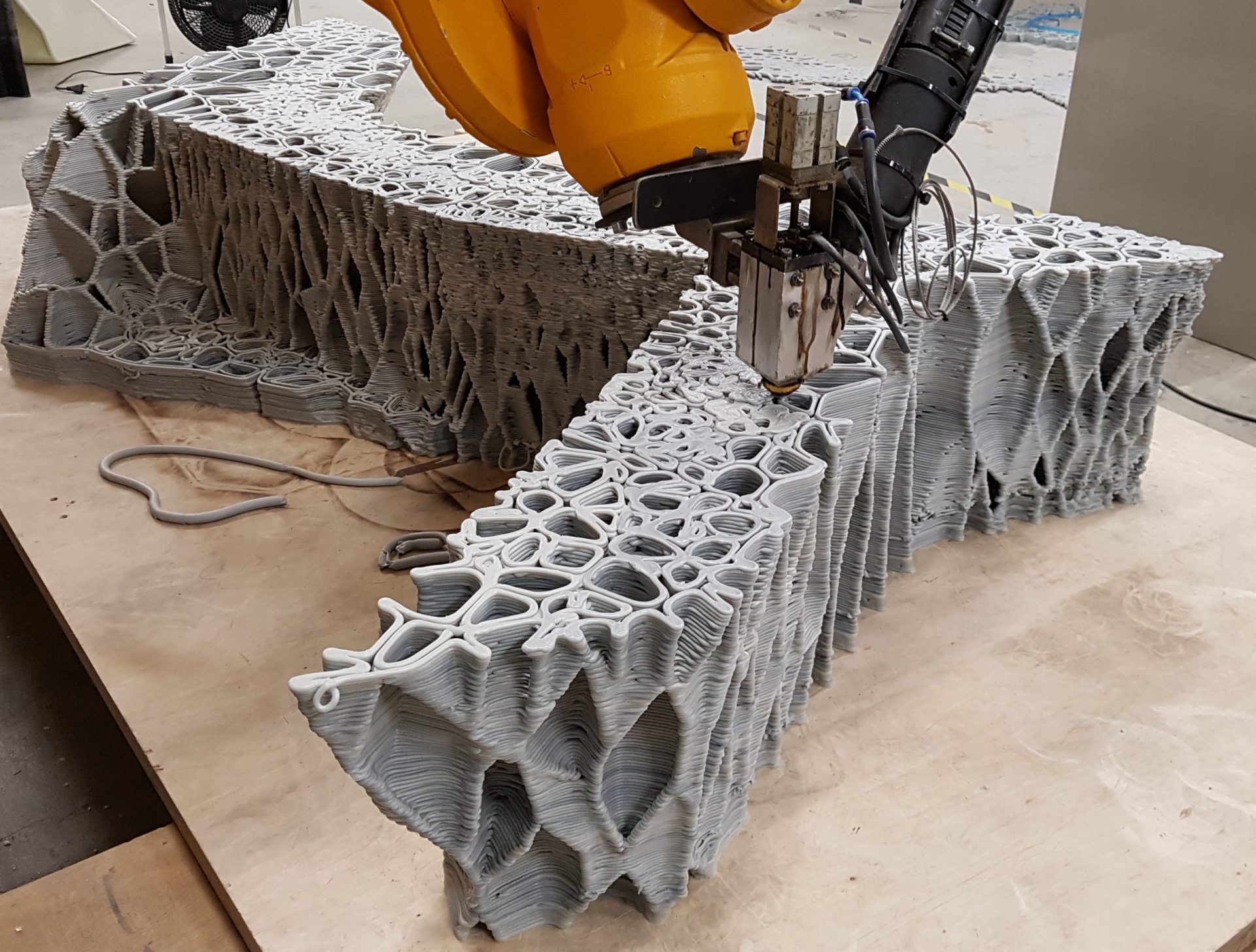
SYMPOSIUM 9th AUGUST 2021
SCHEDULE
11:00 – 12:00 – LIQUIFER Systems Group, Vienna
LIQUIFER Systems Group is a professional office based in Vienna. Their focus is on innovative research and product development with space and terrestrial applications. Architecture, Science and Technology coalesce in the creation of concepts, scenarios and prototypes for future living and working on earth and in space.
Speakers: Barbara Imhof and team
12:00 – 13:00 – Lunch Break
MEETING ID: 828 4458 1584
MEETING CODE: 668713
SCHEDULE
13:00 – 14:00 – ROBOTIC BUILDING, TU Delft
ROBOTIC BUILDING is an academic studio based in Netherlands. Their focus is driven by research and education activities with the aim of developing design to robotic production and operation methods that advance robotisation in architecture.
Speakers: Henriette Bier and team
14:00 – 15:00 – FLOW, CVUT Prague
FLOW is an academic studio based in Czech Republic. Their focus is established by the evolution of science and technology and its integration through mathematical and complex systems, physical structures into the present spatial culture.
Speakers: Jan Petrš, Markéta Gebrian, Loran Asaad, Ondřej Pokoj, Michal Bednář

